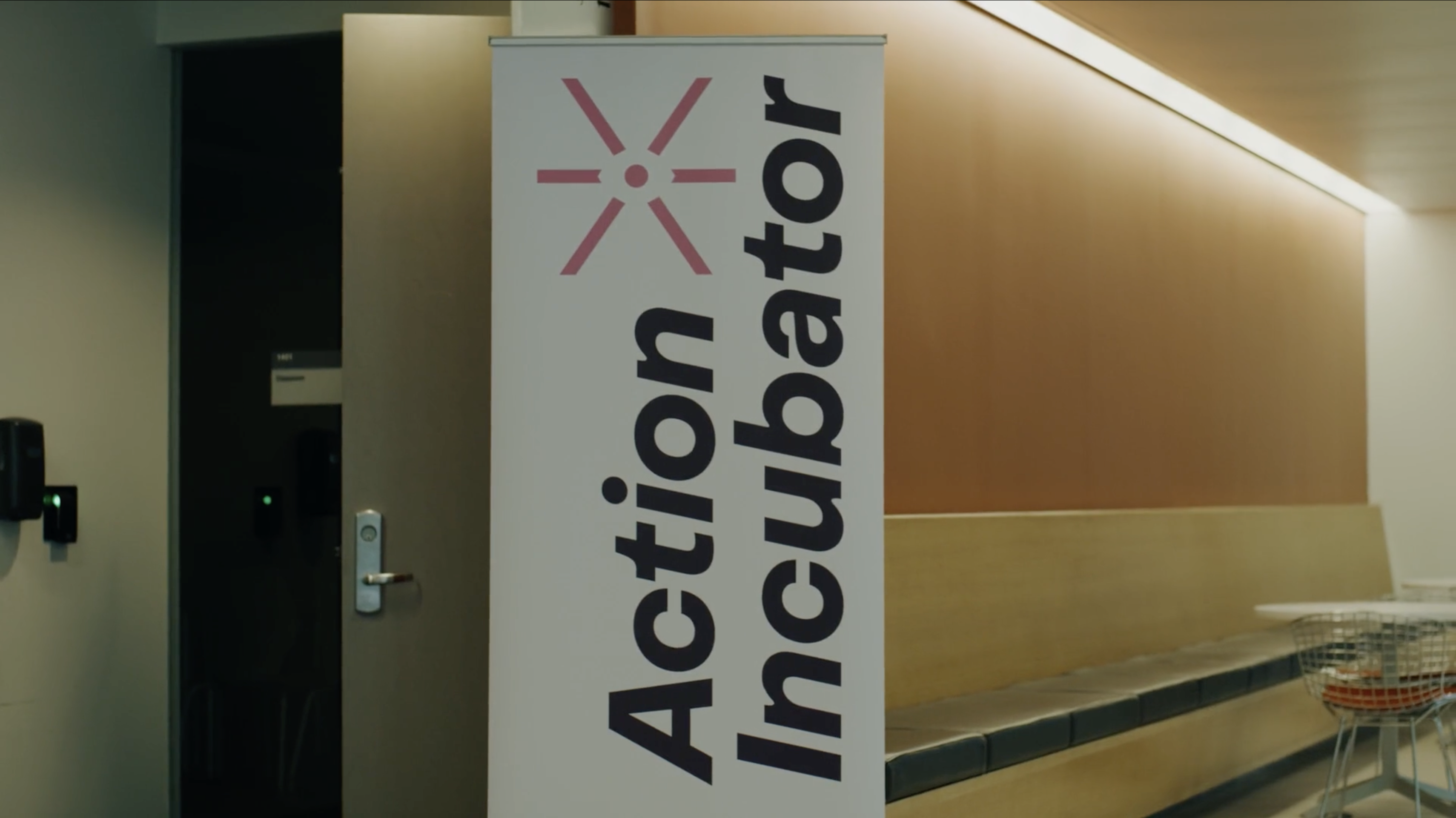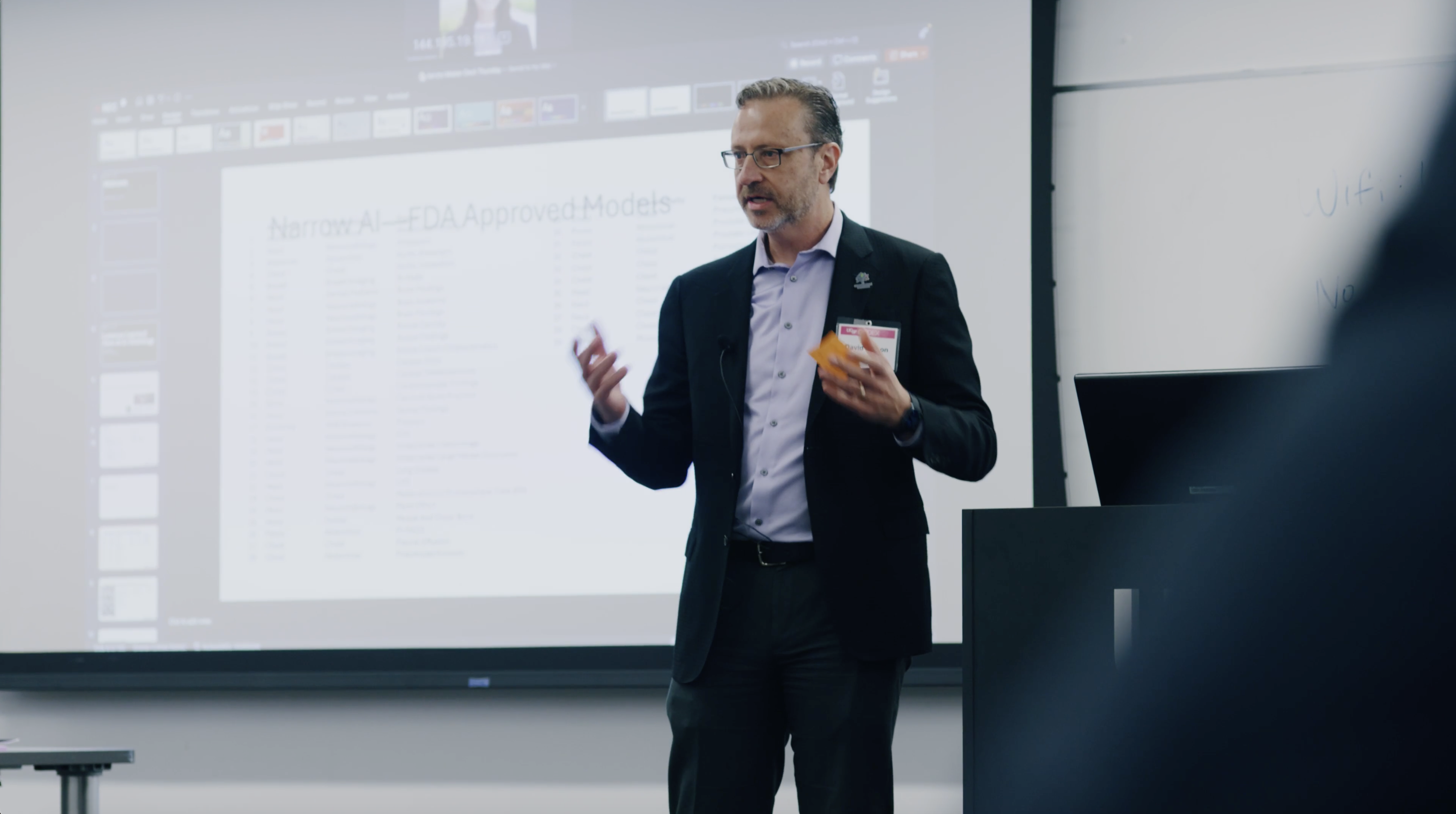Healthcare Leaders Unite at UCSF to Shape the Future of AI in Diagnosis and Patient Safety
Can we measure if AI actually improves diagnosis? UCSF CODEX and 30 healthcare leaders tackle the question.
The University of California, San Francisco Coordinating Center for Diagnostic Excellence (UCSF CODEX) hosted its inaugural Action Incubator, a first-of-its-kind workshop that brought together 30 national thought leaders to tackle one of medicine's most pressing questions: How can we ensure that artificial intelligence improves diagnosis?
The timing couldn’t be more critical. AI is rapidly changing healthcare and offers unprecedented potential for diagnosis. The technology promises to solve longstanding challenges by quickly synthesizing large amounts of data, providing support for both clinicians and patients in thinking about diagnoses, and giving clinicians faster access to accurate patient information while empowering patients to examine their own symptoms and participate in the diagnostic process.
CODEX is determined to ensure that these powerful tools promote diagnostic excellence, translate into better patient outcomes, and lead to safer care.
Addressing Healthcare's Implementation Challenge
 Healthcare has a history of new technologies that fall short of their potential. Without proper evaluation and measurement frameworks, both clinicians and patients may miss out on the true benefits AI could provide.
Healthcare has a history of new technologies that fall short of their potential. Without proper evaluation and measurement frameworks, both clinicians and patients may miss out on the true benefits AI could provide.
“If I were to describe why we need the Action Incubator in a nutshell, it is because we need to make sure that AI actually reaches its potential to improve care—and improve diagnosis in particular—in contrast to how technology has been implemented in healthcare in the past,” says Sumant Ranji, MD, UCSF CODEX director.
“Right now, we're focusing on AI and its potential role in diagnostic excellence,” said Ben Rosner, MD, PHD, Action Incubator faculty lead at UCSF CODEX. “This is an emerging area, but we chose to pick this topic because AI is dramatically changing the way healthcare is going to be practiced, and it's happening live at an incredible pace. We have never seen so much energy devoted to one topic in healthcare, probably since the advent of the electronic health record (EHR) itself.”
A Collaborative Approach to Measurable Change
Held September 11-12, 2025, at UCSF's Mission Bay campus, the Action Incubator united voices that rarely sit at the same table, from hospital C-suite executives to patient advocates, AI developers to medical malpractice insurers, and from payers to academic researchers. The goal was ambitious yet focused: to develop and refine practical metrics that capture AI technologies’ impact on diagnostic excellence—a concept that captures diagnostic accuracy, timeliness, equity, and uncertainty—and to chart a path for implementing these measures in real-world practice.
 Attendees also learned how leading-edge fields like radiology from David Larson, MD, MBA, professor of radiology at Stanford University, are implementing and evaluating AI to improve diagnosis. They also heard emerging evidence from healthcare AI leaders like Sara Murray, MD, MAS, vice president and chief health AI officer for UCSF Health, about how specific AI tools like ambient scribes can influence the diagnostic process.
Attendees also learned how leading-edge fields like radiology from David Larson, MD, MBA, professor of radiology at Stanford University, are implementing and evaluating AI to improve diagnosis. They also heard emerging evidence from healthcare AI leaders like Sara Murray, MD, MAS, vice president and chief health AI officer for UCSF Health, about how specific AI tools like ambient scribes can influence the diagnostic process.
What distinguishes the Action Incubator from many other meetings is its focus on practical application. Attendees didn't just discuss problems; they proposed measurement solutions ranging from leveraging data from ambient AI scribes and measures healthcare systems are already using in the EHR, to patient and provider surveys.
“There was a wealth of ideas for how to measure diagnostic excellence in the context of AI,” said Dr. Ben Rosner. “Our next step is to distill these ideas into an actionable set of metrics and then deploy these metrics to the health systems of our participant sites to learn about the degree to which AI is augmenting diagnostic excellence.”
Real-World Implementation and Impact
 The workshop’s impact extends far beyond its 1.5 days at UCSF. With ongoing participant input, the CODEX team will synthesize the insights into an actionable measurement framework. Health system participants will then pilot the framework at their home institutions, providing crucial data on their effectiveness and areas for refinement.
The workshop’s impact extends far beyond its 1.5 days at UCSF. With ongoing participant input, the CODEX team will synthesize the insights into an actionable measurement framework. Health system participants will then pilot the framework at their home institutions, providing crucial data on their effectiveness and areas for refinement.
This Action Incubator represents more than just another healthcare meeting. It's the beginning of a coordinated, accountable approach to AI implementation in diagnosis, one that puts patient outcomes first and creates the measurement tools needed to ensure AI fulfills its promise to transform diagnosis in healthcare for the better.
5 Ways AI is Already Changing Diagnosis
Key takeaways from the meeting included:
-
AI is already being widely used for diagnosis by clinicians and patients.
-
Emerging evidence indicates that image-based AI applications can improve diagnostic accuracy in specific situations, while also inducing workflow changes and cognitive biases.
-
Generative AI tools, such as ambient scribes, while not specifically designed to improve diagnosis, may benefit clinicians’ diagnostic capabilities by reducing burnout and freeing up cognitive load.
-
Candidate measurement domains for AI-facilitated diagnosis may include measuring the timeliness of diagnosis across clinical settings and using AI to address known diagnostic process failures, such as test result follow-up.
-
As patients are increasingly using AI in their own healthcare, metrics of AI-facilitated diagnosis need to incorporate patient engagement and trust in the diagnostic process.
__
Special thanks to Aaron Tabacco, PhD, RN, for facilitating this meeting.
For the CODEX Action Incubator FAQ, video overview, proceedings, and to stay updated on progress, visit our event page.
About UCSF CODEX (Coordinating Center for Diagnostic Excellence)
Every person deserves access to an accurate and timely diagnosis. At CODEX, we never stop working toward making that a reality. We serve as a national coordinating entity, engaging the diagnostic excellence community to promote novel findings, catalyze action, and advance the field. Our mission is to lead change in the field of diagnostic excellence by facilitating activities that result in measurable improvement in diagnostic quality, safety, and equity.
Contact
Mika Rivera, Director of Communications
Follow Us
Bluesky: @ucsfcodex.bsky.social
LinkedIn: https://www.linkedin.com/company/ucsfcodex
Newsletter: https://ucsf.co1.qualtrics.com/jfe/form/SV_9zU2iVMliYFqBvg

